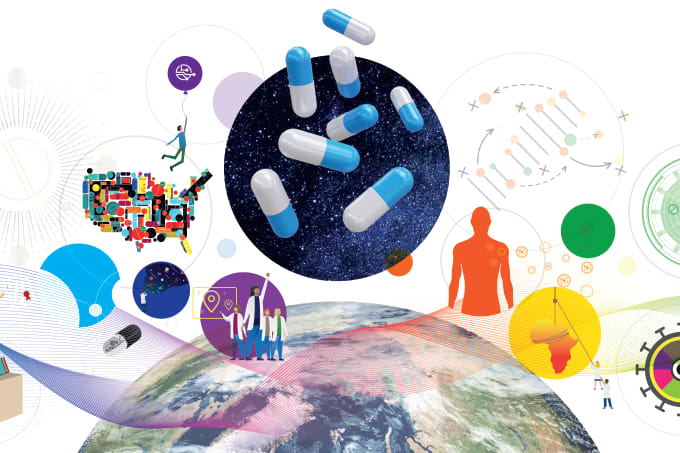Propelled into the limelight by COVID-19, mRNA has emerged as one of the top breakthrough technologies of the century, providing great promise to go beyond infectious disease management and into the realms of curing and preventing cancer, heart disease, muscular dystrophy, and more. With increased demand, drug developers are fighting over partners with the right capabilities and facilities.
Merck recently launched two new GMP-grade mRNA drug substance manufacturing sites in Germany; one in Darmstadt, where the company was founded 355 years ago, and a second in Hamburg, which builds on existing infrastructure and expertise, including the former AmpTec GmbH headquarters.
Here, we speak with Dirk Lange, Head of Life Science Services at Merck, to get his perspective on why mRNA is such an exciting technology for the future of drug development.
What is driving demand for mRNA and investment in new manufacturing facilities?
Over 21,000 molecules are currently in development, but 72 percent of these are owned by emerging biotechs who rely heavily on CDMO partners for technical and regulatory expertise. For mRNA specifically, there are currently over 500 ex-COVID molecules in development (up 54 percent from 2022), with emerging biotechs representing around 80 percent of these. Additionally, the market is expected to grow by over 20 percent in the next four years.
Propelling the promise of mRNA beyond COVID-19 and continuously investing to help bring therapies to patients sooner is a priority for CDMOs. The demand for mRNA and investment in these new facilities is clearly reflected in the mRNA program pipeline, which has grown by 64 percent since February 2022. Additionally, 77 percent of active mRNA programs extend beyond COVID-19.
I have seen a tremendous wave of companies investing and pushing their pipeline in this space, while expressing the need for external partners to navigate this complex landscape.

Where do you see mRNA technology having the most impact?
Owing to success during the pandemic, mRNA as a platform technology is being further explored for vaccine applications for infectious diseases, where the most advanced developments are seen in programs for respiratory syncytial virus, seasonal influenza, and continuous adaptation for emerging COVID-19 variants. But we are also seeing tremendous strides being made in the oncology space – for therapeutic cancer vaccinations, for instance – to treat melanoma, as well as for oncology indications with high unmet medical needs, such as pancreatic cancer.
Notably, mRNA can also be used to fix or replace missing genes and thus potentially cure by targeting the source of the disease, using the patient’s own body to produce proteins to fight disease – a unique advantage over conventional biologics or small molecules. For example, we have been working with Simone Spuler of the Max Delbrück Center for Molecular Medicine to advance her research in finding a cure for muscular dystrophy.
mRNA also promises to speed development and bring therapies to patients faster than other traditional modalities – simply by changing the sequence encoded within the mRNA.
How will the Nobel Prize in Medicine for work on mRNA further affect the market?
The Nobel Prize in Medicine award truly underlines the potential of mRNA and shines an even brighter light on mRNA’s superpower and unprecedented flexibility. And I’d say the Nobel Prize in Medicine win for mRNA will further strengthen confidence in the technology and, as such, positively affect the market.
What does the future of mRNA manufacturing look like from here?
We are only at the beginning of the mRNA era and there is no blueprint, or one-size-fits-all mRNA manufacturing process established. This means that drug developers should consider partnering with the right manufacturing experts. CDMO services are well-positioned to help shape the future of mRNA manufacturing, from the supply of critical raw materials, to providing expertise in formulation optimization and cGMP manufacturing.
What role will industry 4.0 play in the mRNA treatment development and commercialization?
Integration of industry 4.0 principles and digital technologies significantly amplifies the potential and efficiency of mRNA programs across their entire lifecycle. We already see impacts on several levels, starting from the conception phase with computational sequence optimization, to the application of data-driven design of experiments, prediction models, and digital twins, to analytics and digital data analysis supplementation in the overall process design. Cumulatively, this will enable a more efficient mRNA process that has a positive effect on the trajectory of mRNA programs and clinical outcomes.




